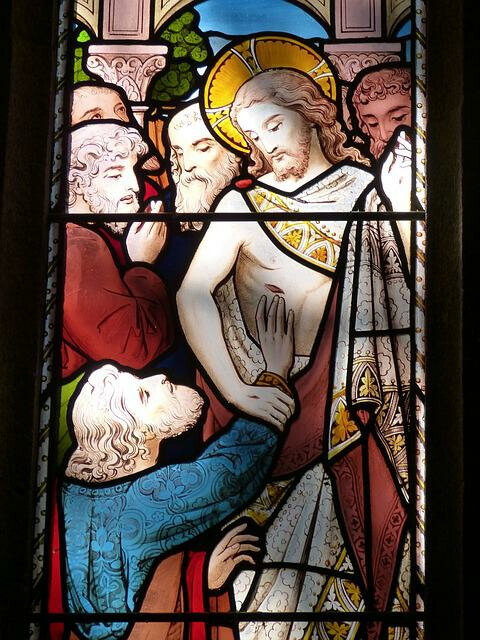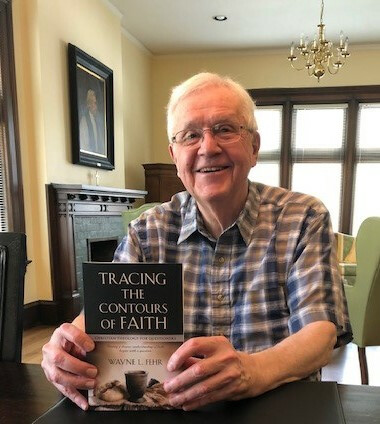Ask a Theologian: Faith and Questioning

Dear Theologian,
I have a question about “faith.” We are sometimes told, “Just believe!” or “Just have faith!” But what if you are being asked to accept without question some understanding of Christianity that you find questionable or dubious? Does “believing” rule out any questioning or doubt? Does it exclude any use of our intellect? How do I decide what is worthy of belief?
Doubting Thomas
Dear Thomas,
Faith, in the Biblical sense, is to place one’s entire confidence and trust in God alone. Abraham exemplifies this kind of faith, and St. Paul sees the faith of Christians as a continuation of that “Abrahamic” faith. Abraham, he says, believed in “the God ... who gives life to the dead and calls into existence the things that do not exist.” And this faith “was reckoned to him as righteousness.” The same kind of faith is exemplified in Christians. “It will be reckoned to us who believe in him who raised Jesus our Lord from the dead...” (Rom 4:17, 22, 24)
Faith, in this primary and fundamental sense, is not the intellectual acceptance of propositions but rather the act (ever-renewed) of entrusting one’s very self to the God who is beyond all words or images. Only secondarily does “believing” have to do with the doctrines and formulations of the Church.
We can get at the point of your question if we notice the ambiguity of the English word “believe,” which we inevitably use when we want the verb that corresponds to the noun “faith.” “Believe” can, of course, mean “to have firm faith, especially religious faith.” But it can also mean “to accept something as true or real; to suppose, have an opinion, or think.” (American Heritage Dictionary, 3rd ed.)
If by “believing” we mean accepting as true a series of propositions about God and “the things of God,” then there is certainly room for serious intellectual work. All human formulations of divine truth are limited and relative to the cultural situation in which they were devised. To penetrate their deep meaning and to re-state it for a new cultural situation is the never-ending work of theology as an intellectual discipline.
Believers have a right to raise questions about Church doctrine, in order to come to a deeper and more correct understanding of God’s truth. St. Anselm’s concept of theology as “faith seeking understanding” (fides quaerens intellectum) is still valid, nearly a thousand years after he coined the phrase.
Faithfulness to God and to the good news of Jesus Christ appears to demand that we be discriminating and discerning in what we accept as binding. This cannot happen without allowing room for questioning and ongoing theological dialogue and argument. The history of the Church’s dogmatic tradition bears ample witness to this.
With regard to the many and varied styles of theological thinking, preaching and praying which one may encounter among Christians today, there is certainly need for critical appraisal and for discernment of the Spirit of God. Not everyone who urges us to accept his or her understanding of the gospel can automatically claim our whole-hearted assent.
But what about the primary meaning of “believing” — entrusting our very selves to God? Is there any room here for doubt, questioning, or intellectual activity?
We must recognize that, although we are called to a total trust in God, the degree of our trust (our faith) can vary greatly from hour to hour and day to day. It is a struggle sometimes to believe in God, because of the nature of our life experiences. Hesitation between belief and unbelief (in the primary sense) is sometimes our unavoidable condition.
To suppress all questions or doubts is to become a fanatic, who refuses to consider any criticism or objections. On the other hand, we can never completely rationalize the choice to believe in God.
Jesus’ urgent exhortation “Do not fear. Only believe!” (Mk 5:36) remains valid as the demand for a total surrender to God in trust, hope, and love. Despite our hesitations and inconsistencies, we must always respond to this as fully as we know how. We can perhaps find comfort in the words of the desperate father seeking help for his son: “I believe; help my unbelief!” (Mk 9:24)
Faithfully,
The Theologian

The Rev. Dr. Wayne L. Fehr wrote a column for a previous version of the diocesan newsletter called Ask a Theologian. He answered questions from ordinary Christians trying to make sense of their faith. You can find and purchase his book on Tracing the Contours of Faith: Christian Theology for Questioners here. Fr. Fehr’s Ask a Theologian column will appear in the Diomil ENews monthly.
